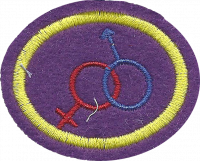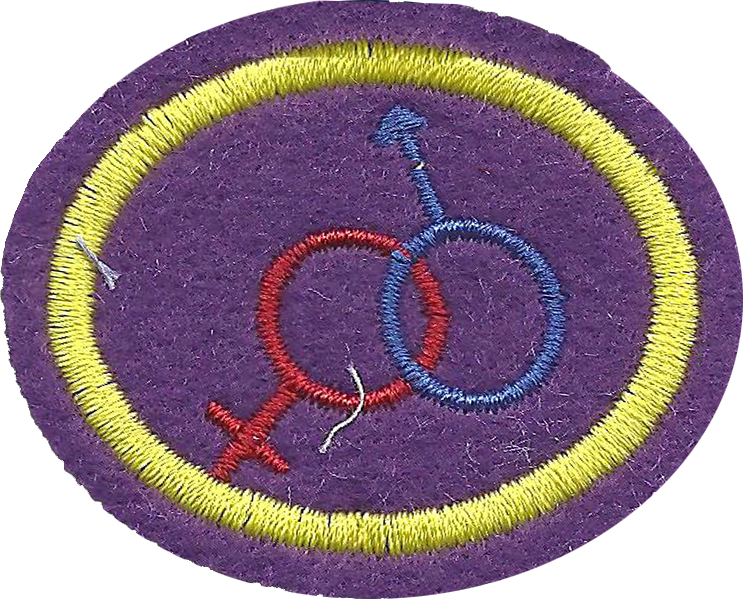Difference between revisions of "AY Honors/Human Sexuality/Answer Key/pt-br"
(Created page with "Especialidades JA/Sexualidade humana/Respostas") |
(Created page with "</noinclude> <!-- 1. O que é sexualidade humana? -->") |
||
| Line 2: | Line 2: | ||
<section begin="Body" /> | <section begin="Body" /> | ||
{{ansreq|page={{#titleparts:{{PAGENAME}}|2|1}}|num=1}} | {{ansreq|page={{#titleparts:{{PAGENAME}}|2|1}}|num=1}} | ||
| − | <noinclude> | + | <noinclude></noinclude> |
| − | </noinclude> | + | <!-- 1. O que é sexualidade humana? --> |
| − | <!-- 1. | ||
| − | |||
| − | |||
| − | + | <noinclude></noinclude> | |
| − | <noinclude | ||
| − | |||
{{CloseReq}} <!-- 1 --> | {{CloseReq}} <!-- 1 --> | ||
{{ansreq|page={{#titleparts:{{PAGENAME}}|2|1}}|num=2}} | {{ansreq|page={{#titleparts:{{PAGENAME}}|2|1}}|num=2}} | ||
| Line 18: | Line 13: | ||
</div> | </div> | ||
| − | + | <noinclude></noinclude> | |
| − | <noinclude | ||
| − | |||
{{CloseReq}} <!-- 2 --> | {{CloseReq}} <!-- 2 --> | ||
{{ansreq|page={{#titleparts:{{PAGENAME}}|2|1}}|num=3}} | {{ansreq|page={{#titleparts:{{PAGENAME}}|2|1}}|num=3}} | ||
| − | <noinclude> | + | <noinclude></noinclude> |
| − | </noinclude> | + | <!-- 3. O que é sexo biológico? Quantos tipos existem? --> |
| − | <!-- 3. | ||
| − | |||
<div lang="en" dir="ltr" class="mw-content-ltr"> | <div lang="en" dir="ltr" class="mw-content-ltr"> | ||
| Line 36: | Line 27: | ||
</div> | </div> | ||
| − | + | <noinclude></noinclude> | |
| − | <noinclude | ||
| − | |||
{{CloseReq}} <!-- 3 --> | {{CloseReq}} <!-- 3 --> | ||
{{ansreq|page={{#titleparts:{{PAGENAME}}|2|1}}|num=4}} | {{ansreq|page={{#titleparts:{{PAGENAME}}|2|1}}|num=4}} | ||
Revision as of 20:54, 1 June 2021
Nível de Habilidade
1
Ano
2012
Version
15.02.2026
Autoridade de Aprovação
Divisão Sul Americana
1
2
3
Biological sex is what defines a person as male, female or intersex. It is determined by a persons sexual anatomy, chromosomes and hormones. Biological sex is often simply referred to as "sex". So there are three types:
- Intersex
- Female
- Male
4
4a
4b
4c
4d
5
6
7
8
9
Abortion is the early termination of a pregnancy by surgical or drug intervention with the intent that the fetus does not survive.
Abortions, like any surgery, can have complications. In rare cases infections or other issues can even threaten the life of the woman. Abortions can rarely result in sterility.
Abortions (or people's reaction to the woman who has one) can cause feelings of guilt, loss, depression etc.
The Adventist Church does not take a stand on this often emotionally charged topic. Adventist Hospitals may or may not perform abortions. The matter is left to individual conviction and Adventists can be found in the pro-choice and pro-life camps. Almost all Adventists, and people in general, would agree that abortion is something best avoided.
Advocates of the pro-choice position, and some advocates of the pro-life position agree that abortion is most acceptable in cases where the woman's life is endangered by continuing the pregnancy, in cases of rape or incest, and in cases where the fetus is unlikely to survive birth (or very long) because of serious defects.
10
11
12
STDs are any of a variety of Sexually Transmitted Diseases. None of them are pleasant but they vary in seriousness. HIV/AIDs is the most serious, with no known cure, AIDS (or more specifically any of the many illnesses that it allows to gain a foothold in the body) has a 100% fatality rate.
12a
12b
12c
HIV is the virus that causes AIDS. It is spreading through the transmittion of bodily fluids from a human carrier to other people. 1. Sexual contact that involves any exchange of fluid (regular intercouse, and oral or anal sex). The use of condoms can reduce the risk. 2. Needle sharing among drug users 3. Infected blood supply via transfusions 4. Exposure to blood or other bodily fluids - often by first responders and medical personal that fail to take precautions 5. From an infected mother to her child.
12d
12e
12f
13
When a young person has questions about sexuality the last place they should turn is thier friends. Kids may have very incorrect views. They may also spread stories on social media about how their friend was asking 'stupid' questions.
Parents, doctors, school councillors, youth leaders and pastors are appropriate places to seek answers. You can also easily access accurate information from reliable website covering the specific topic. For example there are many good resources with science answers on puberty, sexually transmitted diseases and other topics. Be careful that in questions of morality rather then biology to consult like minded Christian adults.
14
Solo masturbation is the act of sexually stimulating oneself with one's hands or various objects.
Couples may also use masturbation of each other as part of an expression of their sexual relationship. Within a marriage this is totally appropriate.
Ellen White, like many of her contemporaries, wrote against the practice using other names including “self-abuse”, “secret sin”, “secret vice,” "moral pollution," etc. Although Ellen White never used the word masturbation she did warn of the negative effects that this habit has on physical and mental health. Here are several examples of her council:
“Secret vice is the destroyer of high resolve, earnest endeavor, and strength of will to form a good religious character.” (1864 booklet "An Appeal to Mothers")
“When persons are addicted to the habit of self-abuse, it is impossible to arouse their moral sensibilities to appreciate eternal things or to delight in spiritual exercises. Impure thoughts seize and control the imagination and fascinate the mind, and next follows an almost uncontrollable desire for the performance of impure actions.” (Mind, Character, and Personality, Volume 2, Page 592)
The Seventh-day Adventist church has taken no official position on masturbation.
15



